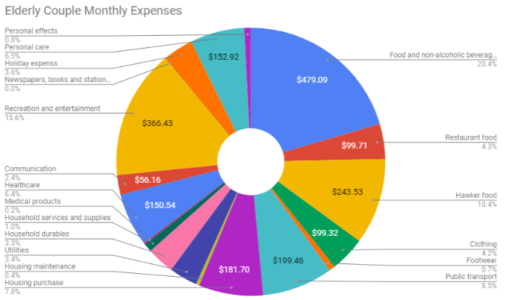Understanding the debate over what constitutes a basic standard of living, including respect, independence, and self-worth.
SINGAPORE: The concept of a basic standard of living has always sparked debate. Is it about mere survival—food, shelter, and clothing—or should it encompass intangible values like respect, independence, and self-worth?
A recent study by the Lee Kuan Yew School of Public Policy (LKYSPP) and Nanyang Technological University (NTU) has reignited this discussion. It estimates that a family of four with two children needs at least S$6,693 per month to achieve a basic standard of living. However, the study’s findings, published in the “Minimum Income Standards 2023” report, have faced criticism from three government ministries—the Ministry of Finance, the Ministry of Manpower, and the Ministry of Social and Family Development.
The Divide Over a ‘Basic Standard of Living’
The ministries argued that the study’s definition of a basic standard of living included discretionary items such as jewelry, perfumes, and holidays. These, they claimed, reflect what people “would like to have” rather than essential needs.
However, the study counters that participants considered items like budget holidays or inexpensive accessories necessary for maintaining self-respect and presenting oneself professionally. “A pair of budget earrings can be a need if it helps someone look presentable at work,” the report’s FAQ section clarifies.
This difference highlights a fundamental ideological divide. While policymakers focus on bare necessities, the study emphasizes that self-respect and inclusion are essential for individuals to feel dignified and connected within society.
Living Wage vs. Minimum Wage
In 2023, earning enough to avoid starvation does not equate to thriving. The study’s call for a living wage—higher than a minimum wage—aims to address this gap. A living wage supports not just survival but a life of dignity, enabling individuals and families to meet both needs and modest wants.
The government’s response highlighted potential drawbacks, such as the risk of unemployment for less-skilled workers if a wage floor is set too high. However, the report argues that establishing a living wage benchmark could guide policies, encourage fair remuneration, and empower workers to demand fair pay.
Why It Matters
The concept of a living wage goes beyond economic metrics. It addresses the growing frustration among workers who struggle to achieve a decent quality of life despite working hard. As the study revealed, about 30 percent of Singapore’s working households earn below the minimum income needed for a basic standard of living.
Singapore has seen rising social welfare spending—from S$17 billion a decade ago to S$31 billion today—but the report suggests these measures remain inadequate. With costs rising, many households live paycheck to paycheck, barely managing to meet basic needs.
Respect and Independence as Core Values
Beyond wages and necessities, the report underscores the importance of fostering respect and independence. A person’s ability to maintain their dignity in society—whether through professional appearance or modest family activities—should not be dismissed as frivolous.
Policies that treat vulnerable groups solely as workers toiling to survive, rather than individuals with aspirations and dignity, risk perpetuating inequality. By acknowledging these abstract needs, Singapore can move closer to building an inclusive society.
Toward Consensus
The debate over what defines a basic standard of living underscores the need for a shared understanding of societal values. Self-respect, independence, and social inclusion are not luxuries; they are critical components of well-being.
As Singapore continues its journey as a wealthy and developed nation, ensuring a dignified life for all citizens is not just desirable—it is necessary.








